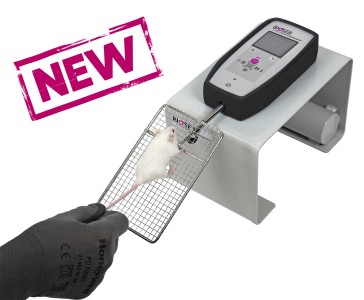Authors
Jeong SI, Shin JA, Cho S, Kim HW, Lee JY, Kang JL, Park EM
Lab
Department of Pharmacology, School of Medicine, Ewha Womans University, Seoul, Republic of Korea
Journal
Neurobiol Aging.
Abstract
Resveratrol is known to improve metabolic dysfunction associated with obesity. Visceral obesity is a sign of aging and is considered a risk factor for ischemic stroke. In this study, we investigated the effects of resveratrol on inflammation in visceral adipose tissue and the brain and its effects on ischemic brain injury in aged female mice. Mice treated with resveratrol (0.1 mg/kg, p.o.) for 10 days showed reduced levels of interleukin-1β and tumor necrosis factor-α, as well as a reduction in the size of adipocytes in visceral adipose tissue. Resveratrol also reduced interleukin-1β and tumor necrosis factor-α protein levels and immunoglobulin G extravasation in the brain. Mice treated with resveratrol demonstrated smaller infarct size, improved neurological function, and blunted peripheral inflammation at 3 days postischemic stroke. These results showed that resveratrol counteracted inflammation in visceral adipose tissue and in the brain and reduced stroke-induced brain injury and peripheral inflammation in aged female mice. Therefore, resveratrol administration can be a valuable strategy for the prevention of age-associated and disease-provoked inflammation in postmenopausal women.
BIOSEB Instruments Used
Grip strength test (BIO-GS3)
Keywords/Topics
Domaines de recherche divers
Source :

 Douleur - Allodynie/Hyperalgésie Thermique
Douleur - Allodynie/Hyperalgésie Thermique Douleur - Spontanée - Déficit de Posture
Douleur - Spontanée - Déficit de Posture Douleur - Allodynie/Hyperalgésie Mécanique
Douleur - Allodynie/Hyperalgésie Mécanique Apprentissage/Mémoire - Attention - Addiction
Apprentissage/Mémoire - Attention - Addiction Physiologie & Recherche Respiratoire
Physiologie & Recherche Respiratoire




































 Douleur
Douleur Système Nerveux Central (SNC)
Système Nerveux Central (SNC)  Neurodégénérescence
Neurodégénérescence Système sensoriel
Système sensoriel Système moteur
Système moteur Troubles de l'humeur
Troubles de l'humeur Autres pathologies
Autres pathologies Système musculaire
Système musculaire Articulations
Articulations Métabolisme
Métabolisme Thématiques transversales
Thématiques transversales Congrès & Meetings
Congrès & Meetings 